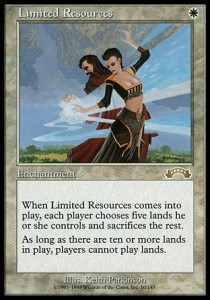Are you a Quiet Speculation member?
If not, now is a perfect time to join up! Our powerful tools, breaking-news analysis, and exclusive Discord channel will make sure you stay up to date and ahead of the curve.
Last week I talked about Hobby tax for those that use MtG Finance as just a supplement to our hobby. Some of us, however, use it as a reliable source of income. Those folks have a slightly different scenario when it comes to tax time.
There’s both some benefits and some drawbacks. Again, I must reiterate, I’m not a CPA nor Tax expert, so this information shouldn’t replace the need to see a professional. The goal is to be more informed about what types of expenses to track so you can properly itemize your deductions, whether you use a professional tax preparer or do them yourself.
I’ve been Self-Employed for 10 years and have always done my own taxes. My situation is fairly simple, but for you it may not be, so don’t hesitate to explore professional customized help. IRS publication 334 gives a walk through of what a Self-Employed person must file each year.
Self Employment Tax
Self Employment Tax is certainly the primary drawback of operating as a business instead of keeping your operations at the hobby level. Most typical wage-earners have automatic deductions from their pay for things like Social Security and Medicare, which amounts to approximately 7.6% tax.
What they don’t see is that their employer also matches that amount on their behalf. As a self-employed person, you’re responsible for both halves, totaling 15.3%. Half of this Self Employment expense is deductible from your Adjusted Gross Income. This tax rate is reduced to 2.9% on any income above $106,800. This is important, because if you also have a normal wage-paying job, you are already paying into Social Security from your job. If your wages alone are $106,800 or more, you will only pay the 2.9% Medicare tax on the portion for your Self-Employed Magic Card business.
Net Income
Your Net Income is your Revenues less the Cost of Goods Sold.
The cost of Goods sold is the tricky one. I’ve heard people using methods that I personally believe are less than scrupulous, and I wouldn’t recommend them. The costs of your goods sold is any purchases of inventory less any amount that is kept for personal use.
Suppose you buy a collection for $100. You plan to resell the collection, but decide to keep a Mana Drain that was hiding inside. Some would say to claim the Mana Drain was of nominal cost, and the collection makes up the actual cost, so that it all could be attributed to your Costs of Goods Sold.
However, the more appropriate way to consider this is what percent of the collections resale value does the Mana Drain make up? This is the percent of the cost of the collection you should subtract as an item kept for personal use.
In this example, if the Mana Drain makes up about 30% of the value of the collection, you would subtract $30 ($100 x 30%) from the $100 cost of the collection, and the amount applied to your Cost of Goods Sold is $70. Once you’ve determined how much actual cash you’ve spent on inventory, you subtract it from your cash receipts to get your Net Income. Your cash receipts may come from selling singles or sealed product, but should be combined, as would your costs of obtaining that inventory.
Again, if you set aside a certain portion of the sealed product you open for yourself to keep or use, you should not include that portion as part of your Costs of Goods Sold. You’ll want documentation of anything you buy and how much it cost you. This is easy if you’re using online transactions, but buying collections in person is different. Keep a log book and have each seller sign their name and the value of what they sold you in the book.
Income Tax Deductions
The IRS provides Publication 535 specifically describing all types of Business Expense deductions.
When calculating your Adjusted Gross Income (and corresponding Tax Bracket) you’ll take your Net Income and subtract all itemized deductions. Most commonly this will be travel expenses to events where you buy, sell or trade cards, as well as use of your vehicle to find collections and other associated costs for your vehicle like insurance and gasoline.
If your home has an office that is dedicated to Magic Card sales, you can deduct a portion of your rent or mortgage as a business expense. To do so, what percent of your home does the office take up in square feet? That’s the percent of your rent you may deduct.
Keep in mind the office space must be specifically dedicated for work. It may not be a spare bedroom or living quarters for any person. If you are operating as a business, you’ll likely want Business Owners Insurance, and the cost of this can be deducted as well. (If you are on the Hobby plan, you should look into Renters or Homeowners insurance for your collection, which isn't deductible. I’ve received a lot of requests for an article about insurance, which will be next week.)
Charitable Donations
Donations are not a business expense and should not be written off as such. They can be written off of your personal tax return as long as you have the appropriate receipt from a charity. The general rule of thumb for valuing donations is ¼ of its original cost.
So if you donate 1000 cards, that’s approximately 71 packs worth of cards, which would cost you around $282 if you use the retail price of $3.95 each. ¼ of $282 is a $70 deduction. If you are able to make use of the deduction, it will likely save you some tax dollars, more so than selling off bulk will.
Just make sure to get detailed receipts and photograph everything you donate. Save this information with your tax documentation. You may also want to consider a Magic Friendly charity: Gamers Helping Gamers
Don’t dodge your tax liability, don’t write off more than what’s allowed and don’t try to hide the fact that you are a business from the Government. There’s a big difference between making a mistake on your taxes and paying the appropriate penalty and directly evading taxes.
Tax evasion is not a joke and you don’t want to get in that predicament just to save a few dollars.
Next week, insuring your inventory...
Until then!
Chad Havas





